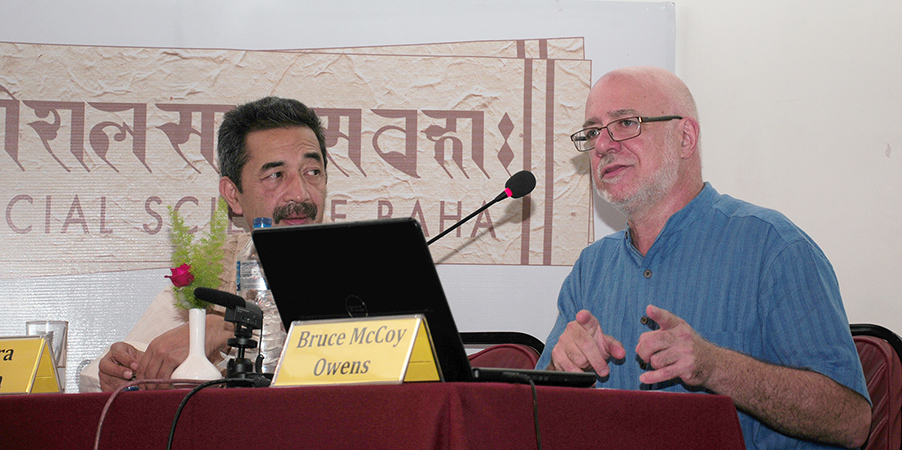Lecture Series
The Bāhāḥs and Bahīs of Nepal: Thirty Years of Transformation, Preservation, and Innovation

Bruce McCoy Owens
on
The Bāhāḥs and Bahīs of Nepal: Thirty Years of Transformation, Preservation, and Innovation
In 1985, the late Father John Locke, one of the pioneering and most influential scholars of Newar Buddhist traditions, published the results of his massive 10-year survey of the 365 bāhāḥs and bahīs of Nepal. Since 2008, I have been retracing his steps to see what transformations these monastic compounds, critical to Newar Mahāhayāna and Vajrayāna practice, have undergone over nearly three decades of dramatic and multifaceted social, political, and cultural change in Nepal. This lecture will provide an overview of the physical changes these compounds have undergone during this tumultuous period. My research suggests that innovations in transformative practices, changing ideas about authenticity and preservation, and the conspicuous democratisation of sponsorship of these changes have resulted in alterations that conform to notions of authenticity—old and new, Newar, and foreign—as well as deliberate departures from tradition.
* * *
Listen to or download lecture in audio format
Bruce McCoy Owens is Associate Professor of Anthropology at Wheaton College in Norton, Massachusetts. He received his PhD in Anthropology from Columbia University in 1989, having written his thesis on the topic of the chariot festival of Bungadyāḥ/Rāto Matsyendranāth, based on research he conducted in Nepal from 1982-1984. He has published articles on this festival, monumental transformations at Swayambhū, and other topics related to religious festivity and sacred places in Nepal.
Professor Owens’ recent publications include Sucāruvādadeśika: A Festschrift Honoring Professor Theodore Riccardi (2014) (co-edited with Todd Lewis) and ‘Innovation in Traditions of Transformation: A Preliminary Survey of a Quarter Century of Change in the Bāhāḥs and Bahīs of the Kathmandu Valley’ (2014) published in South Asia: Journal of South Asian Studies, upon which this presentation will expand.
